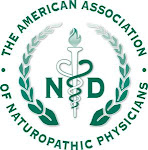AANP President
Governor Deval Patrick, of Massachusetts, did not sign the Naturopathic Practice Act. The bill passed both chambers of the legislature in a special session in December 2012 and required his signature to become law.
This brings up many thoughts and emotions for me. I feel disappointment over a legislative process that seems slow and unfair. And there is anger at a process that placates the desires of the Massachusetts Medical Society over serving the health needs of the public and the desire of the Commonwealth. However, my dominant emotion is pride and amazement at the dedication of our ND colleagues who for 18 years have worked to achieve licensure for the Massachusetts NDs.
Our profession is now at a new legislative high water mark for licensure in the United States. According to our history as described in the Textbook of Natural Medicine (pg. 71 Vol. I, 3rd edition), it is described in the California based International Society of Naturopathic Physicians 1948 membership directory as 13 states, the territory of Hawaii and 3 Canadian provinces. There were 32 state associations then.
There are currently licensing laws in 16 states (up from 5 in 1978), the District of Columbia, the United States territories of Puerto Rico and the U.S. Virgin Islands, and 5 Canadian provinces. We have 7 healthy, accredited North American colleges and there are now 43 state associations..
Naturopathic Medicine is a profession that thrives on the passion of its doctors and the generosity of its volunteers.
- We have the tremendous efforts of our state associations that are operated by volunteer board members and supported by member dues. These organizations fight to improve licensing laws where we have them and acquire laws were we do not.
- We have the dedicated members of our state licensing boards. These NDs do the difficult and often unrecognized work of regulating the professional activities of our licensed NDs and bear that unique burden of judging unprofessional conduct and administering remediation and punishment.
- The members of the Federation of Naturopathic Medicine Regulatory Authorities provide support to the licensing and regulatory authorities.
- The members of the Council on Naturopathic Medical Education (CNME) which accredits naturopathic medical education programs. North American Board of Naturopathic Examiners (NABNE) and Naturopathic Physicians Licensing Examination Board which work together to manage the NPLEX examination process.
- I applaud the NDs who are board members of the colleges and the many faculty and other committees that keep our colleges improving.
- I appreciate those who forward our medicine by serving on specialty societies such as HANP, OncANP, PedANP, AANM, INGM, NAEM, NMSA, NP-GA, AANMC, SpiritMed, and IV Micronutrient Therapy.
- The serious work of the innovators, those who create the Naturopathic Education and Residency Consortium (NERC/STAIR) and Naturopathic Physician Research Institute, (NPRI).
All this work begs the question, “Why do we do this?” Well…what else would we do? We have our health; we have a noble profession that we love, serve the needs of our communities, and forward the understanding of true healthcare for the coming generations. Indeed, I know no better outlet for my daily bread.
I send the highest kudos to our ND brothers and sisters in Massachusetts. May you heal your wounds and come out fighting.




